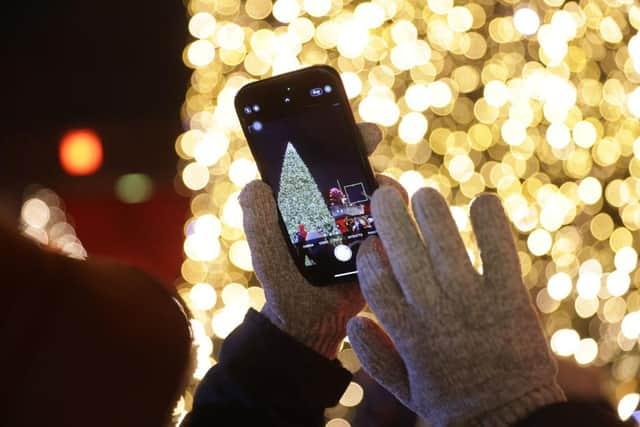Mobile phone school ban: As New Zealand becomes latest country to prohibit smartphones in schools, which other nations have imposed a ban? Will Scotland follow?
It was a key part of the election manifesto of the new government – and is becoming an increasingly popular policy worldwide.
Now New Zealand is the latest country to ban mobile phones in schools in a bid to improve behaviour and children’s mental health.
Advertisement
Hide AdAdvertisement
Hide AdIn his first speech after being sworn in on Monday, National party leader and incoming prime minister Christopher Luxon announced the policy as part of his 100-day plan. However, Mr Luxon’s government, which was formed last week following months of negotiations over potential coalition deals, will not be the first to prohibit the use of smartphones in schools.


Unveiling the policy earlier this year, when he pledged he would implement the ban if elected, Mr Luxon said getting rid of smartphones would “eliminate unnecessary disturbances and distractions”.
“Many schools here and overseas have experienced positive outcomes, including improved achievement, after banning the use of cell phones,” he said. “We want teachers to be able to get on with teaching and students to concentrate on learning.”
In countries including France and Italy, there is already a national ban on phones in schools. France brought in the new policy five years ago, which outlaws the use of phones, tablets and smart watches in primary and junior schools – until pupils are around 15 years old and enter the high school, or lycee.
In Italy, teachers collect students’ smartphones at the beginning of the day, while the Netherlands is going to introduce the ban next year.
China, which recently put forward plans to limit children’s smartphone use to a maximum of two hours a day, also proposed to prevent children from accessing a smartphone at all from 10pm to 6am.
Meanwhile, in Finland, the home of pioneering mobile phone brand Nokia – and where children tend to get a phone far younger than in many other countries – the government said in June it wanted to “make the necessary legislative amendments to enable more efficient restrictions” of mobile devices during the school day. This, in short, will give teachers more power to ban the devices.
This comes after a public petition that gathered more than 30,000 signatures, urging for implementing measures such as switching off mobile phones during lessons and breaks or banning them from classes altogether.
Advertisement
Hide AdAdvertisement
Hide AdThere have been calls for a similar policy to be introduced in Scotland. Earlier this year, the UK Government said mobile phone use should be banned across schools in England, although the Scottish Government has not followed suit.
A recent report from the United Nations made the same recommendations, saying smartphones should be banned from all schools to battle classroom disruption.
Scottish public school Gordonstoun, which was attended by King Charles III and his father Prince Philip, has restricted smartphone use since 2017 and called on the Scottish Government to implement a nationwide ban.
Gordonstoun School principal Lisa Kerr said the devices have a "detrimental impact" on pupils' mental health and their ability to concentrate during lessons.
Comments
Want to join the conversation? Please or to comment on this article.
